STEM aspirations
Nov. 8 was National STEM Day, a day for encouraging students’ interests in the diverse fields of science, technology, engineering and math. “The Hawk Eye” takes a look at four students who are interested in pursuing a career in each field.
Senior Emily Nguyen: Physician
Standing in her 7th grade science classroom, senior Emily Nguyen begins the process of dissecting a frog and analyzing the intricate organ structures inside. For Nguyen, it was this event that solidified her interest in pursuing a scientific career.
“It wasn’t until middle school when I started to put thought into my future career choices, and I settled on being a physician,” Nguyen said. “I’m fascinated by the human body and how everything works on a molecular level.”
Nguyen said one of the biggest things that inspired her pathway was seeing the perseverance and courage of countless healthcare professionals who risk their lives everyday.
“I read an article in 2018 about a Jewish nurse who cared for and saved a man who killed 11 people when he shot up a synagogue,” Ngyuen said. “In the article, she states she was just doing her job, but it was her compassion and professionalism that really spoke to me and inspired me.”
Nguyen said she hopes to attend Emory University in Atlanta for her undergraduate and then continue studying there for medical school. She said although she has always known she wants to become a doctor, the biggest question for her is what kind of medical specialty she wants to pursue.
“I don’t think I’d be a surgeon or anything involving high-pressure situations,” Nguyen said. “Although I tend to perform well under pressure, I have to admit that I’m very empathetic and sensitive; I would be distraught over the patients I didn’t save. I wouldn’t like to work in a lab setting either, I love the idea of interacting with patients face-to-face. That leaves me with something diagnostic, and I’d like to specialize in one field or one body part, maybe oncology.”
Nguyen is currently President of the Science National Honor Society, where she is in charge of managing over 200+ students. Nguyen said her favorite part about being in Science National Honor Society is being able to spread her love of science to other students through activities such as the ‘Chem Demo.’
“My favorite part [about Science National Honor Society] is the Chem Demo Team, definitely,” Nguyen said. “Last year, we put on shows at the Fort Worth Museum of Science and History, as well as state science teacher conventions and local elementary schools. Our shows are super fast-paced 30-minute shows, so it’s always a thrill to see these cool demonstrations [and] explosions while also being pressured to set up the next demo. The coolest thing though is seeing kids’ reaction to each demo.”
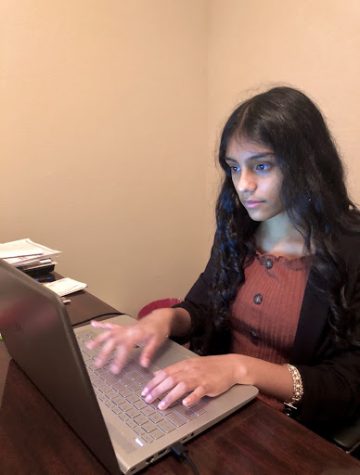
Junior Geena Ginu: Computer Science (Programmer)
Sitting behind a computer, junior Geena Ginu practices programming in Java, one of the many programming languages. Ginu’s love and desire to understand how computers work fueled her decision to pursue a career in computer science.
“I got interested because I’m the oldest child, so when my parents needed any help with technology such as fixing iPads, computers, phones and printers, I was always the one they went to,” Ginu said. “I find interest in trying to fix them and trying to find out what’s wrong with them, so that’s how I really got interested.”
Ginu said her passion for computer science was also fueled by reaching out to mentors early on and asking about the field. She said contrary to popular belief, computer science is not just typing on a computer, but has a large emphasis on understanding and evaluating why and how pieces of code are placed where they are.
“Computer science is basically studying computers,” Ginu said. “There’s hardware, software, networking and the internet. Programming uses concepts like functions, algorithms and code designing– and computer science is all of that. It’s basically how computers work and how they run.”
Ginu said she is considering becoming a computer programmer. She said she believes people undervalue computer science, but as the field continues undergoing unprecedented growth, more will gravitate towards it.
“Right now [I] don’t think a lot of people are interested in [computer science],” Ginu said. “You’re sitting in front of a computer all day, there’s barely any human interaction. I can definitely see how many people aren’t interested in it right now, but I think as we grow older and evolve, technology is going to become one of the biggest things we use every day – it already basically is. People will take more interest in it once they see how important it is.”
Senior Anthony Pipitone: Aerospace Engineer
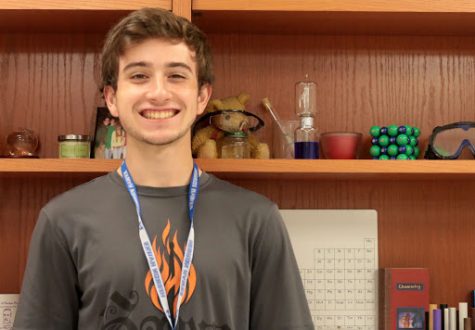
Arriving at the office, an aerospace engineer begins working on the design of cutting-edge technologies to be used in aircraft, spacecraft, satellites and missiles. For senior Anthony Pipitone, who loves math and science, pursuing this field of engineering only seemed natural.
“I’ve always thought about [becoming an engineer] because I’ve always been really good at math,” Pipitone said. “I’ve also always really liked science even though I’m not as good [with] it as I am with math. Honestly, I’ve known since elementary school what field I wanted to go into.”
Pipitone said watching instructors on YouTube and social media taught him a lot about aerospace engineering and fueled his interest in it.
“I want to go into aerospace engineering,” Pipitone said. “So I want to know a lot about [in the space route] spaceships and space, astrophysics and [everything] associated with it.”
Pipitone said he applied to and hopes to attend Embry-Riddle Aeronautical University next year for aerospace engineering. Pipitone said, in his opinion, other students who want to go into engineering should learn to apply general concepts and understandings from math and science early on.
“I think a lot of things in math and science classes can be applied to this job, which is why I want to pursue a path in it.”
Senior Lilly Parker: Actuary
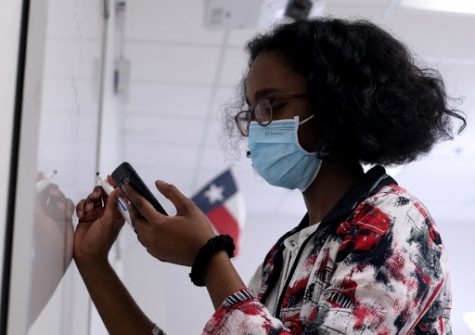
(Photo by Grace Edgeworth)
For many students, math can become an indistinguishable jumble of letters, numbers and symbols. However, senior Lilly Parker’s experience could not be more different, with her love of math motivating her to pursue a career as an actuary.
“I’ve been pretty good at math since I was young,” Parker said. “I went to a Montessori school, which was very focused on concrete learning, and we always had ‘counting blocks’ which I enjoyed, so that’s really how I gravitated toward math in the first place.”
Parker said she began to seriously consider math as a career in middle school. She said she mainly enjoys math because of the real-world applications and how universal the skills are.
“I like the practical aspect of math and how consistent it is with rules,” Parker said. “I definitely think I have a gift for it, and in middle school, I was involved in lots of math competitions, which built up my confidence in it. I especially liked how relevant it is to so many different parts of our world today.”
Parker said she wants to become an actuary, someone who helps companies analyze risk and make decisions regarding investments and insurance.
“I would say the salary was a big draw but I mainly like what it entails,” Parker said. “[An actuary] deals with insurance and calculates risk. In addition to calculation and computational skills, there are also analytical skills which I enjoy, because while I do enjoy math, I also like English.”
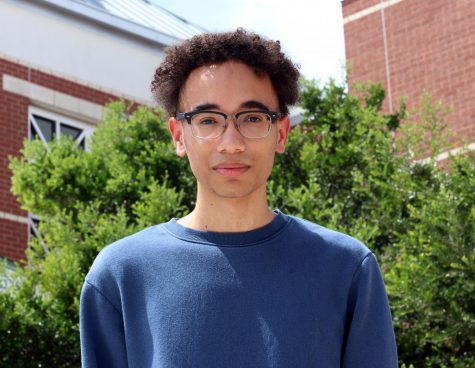
Senior Ian Wright is the opinion section editor and this is his second year on staff. He enjoys listening to music, traveling to new places, watching Netflix...








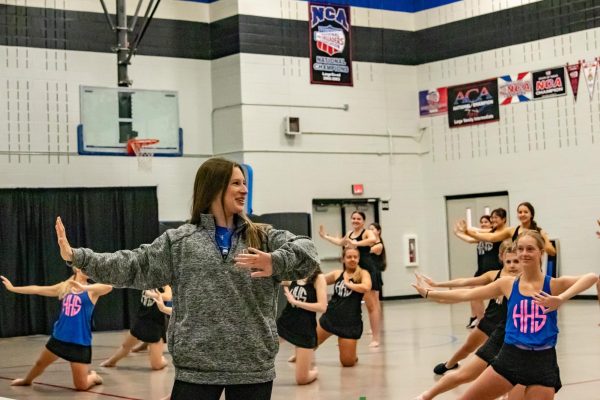
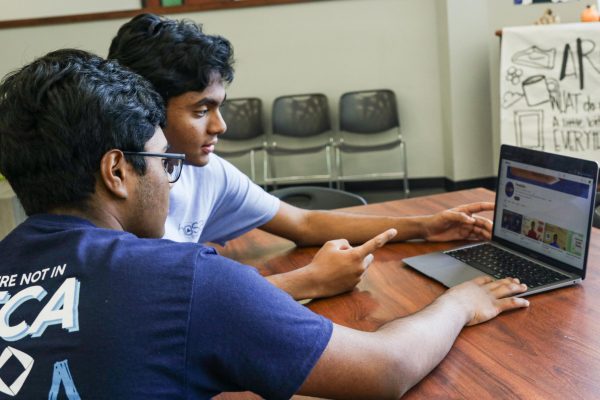
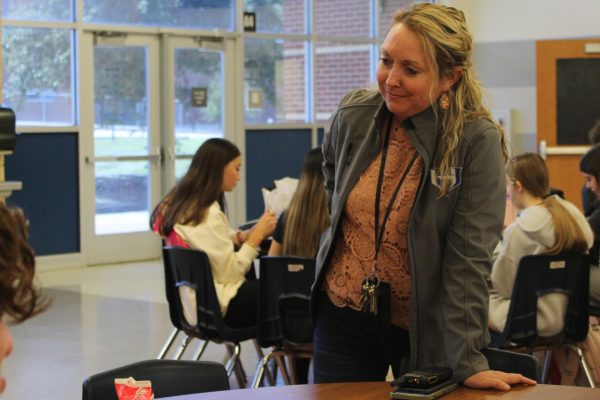
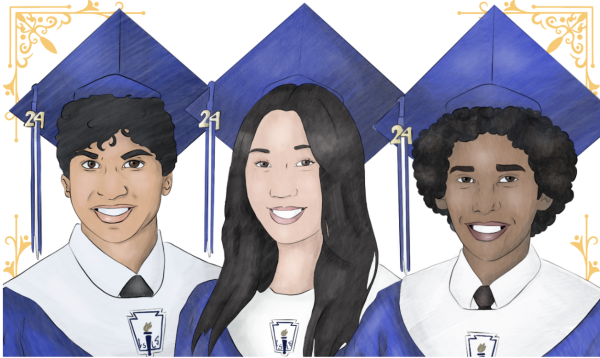
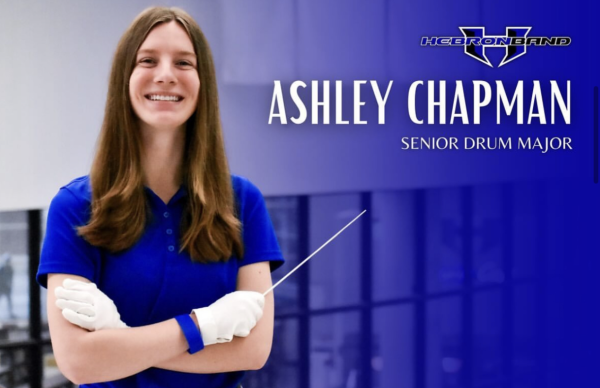
Tricia Felicien • Nov 14, 2020 at 2:14 PM
Great job Ian!